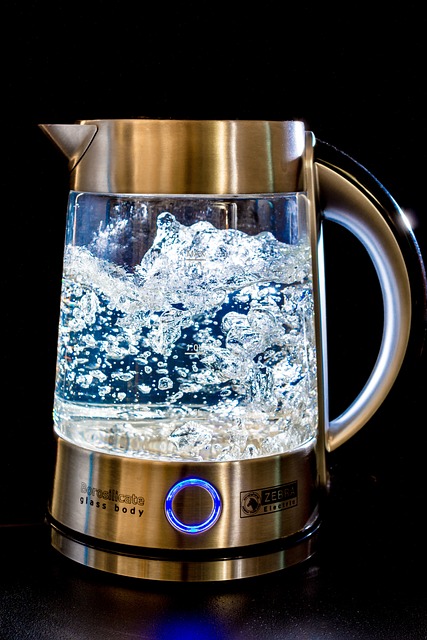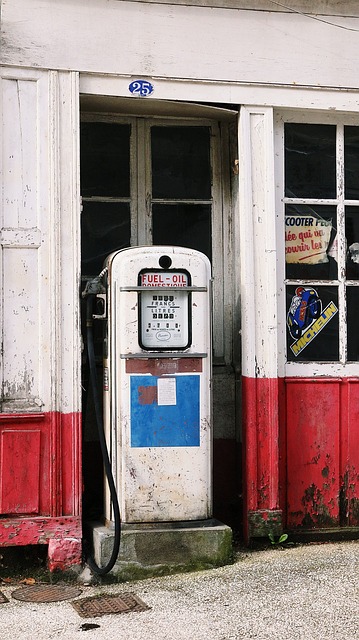Regular water heater maintenance (every year or more often for older models) through tasks like checking for leaks, inspecting tanks, testing valves, and flushing sediment significantly extends the lifespan of your heater and prevents costly repairs. Annual professional inspections are key to early detection of issues. Additionally, simple measures such as insulating pipes, using temperature thermostats, and limiting simultaneous hot water usage can save money on energy bills.
Preventing costly water heater repairs starts with routine maintenance. This article guides you through understanding the importance of water heater maintenance, outlining regular check-up practices and effective prevention tactics. By following these steps, you can extend your water heater’s lifespan, avoid unexpected breakdowns, and save on expensive repairs. Learn essential tips for optimal water heater care to keep your home’s hot water flowing smoothly.
- Understanding Water Heater Maintenance
- Regular Check-ups and Prevention Tactics
- Tips for Effective Water Heater Care
Understanding Water Heater Maintenance

Regular water heater maintenance is a proactive approach that can save homeowners from unexpected and costly repairs. It involves a series of simple tasks designed to ensure your water heater functions efficiently and reliably over its lifespan. This routine care includes checking for leaks, inspecting the tank for corrosion or sediment buildup, and testing the temperature and pressure relief (T&P) valve. By addressing these issues promptly, you can prevent more serious problems that may lead to expensive replacements or repairs.
Water heater maintenance is not just about fixing issues when they arise; it’s a continuous process. During routine checks, homeowners should also consider flushing the tank to remove any accumulated sediment, which can reduce energy efficiency and even cause the heater to malfunction. Additionally, inspecting electrical connections and ensuring proper ventilation are crucial steps in maintaining a safe and efficient water heating system.
Regular Check-ups and Prevention Tactics

Regular check-ups are a crucial aspect of water heater maintenance, acting as a proactive defense against unexpected breakdowns and costly repairs. Homeowners should schedule professional inspections at least once a year to ensure the heating element is functioning optimally and to detect any potential issues early on. During these visits, technicians can flush out sediment buildup, inspect for leaks, and perform essential diagnostics to prevent future problems.
Implementing preventive tactics alongside regular check-ups further reinforces water heater longevity. This includes insulating hot water pipes to minimize heat loss, using temperature-setting thermostats to control heating, and avoiding overloading the heater by limiting simultaneous hot water usage. By adopting these simple measures, homeowners can significantly reduce the risk of major repairs and extend the lifespan of their water heaters.
Tips for Effective Water Heater Care

Regular water heater maintenance is key to preventing costly repairs. Start by setting a schedule for checking your heater at least once a year, or more frequently if it’s older or shows signs of trouble. During these checks, inspect the tank for any leaks, corrosion, or sediment buildup—common issues that can lead to failures. Keep an eye on the temperature and pressure relief valve (TPR), ensuring it functions correctly and isn’t leaking.
Additionally, insulate your water heater to prevent heat loss, especially in colder climates. Consider using thermal insulation wraps specifically designed for water heaters, which can reduce energy bills and extend the appliance’s lifespan. Don’t forget to check the connections and vents for any blockages; ensuring proper airflow and drainage is vital for optimal performance and safety.
Regular water heater maintenance is a proactive approach to prevent costly repairs. By understanding the key aspects of maintenance, implementing preventive tactics, and following effective care tips, you can extend the lifespan of your water heater and avoid unexpected breakdowns. Embracing routine check-ups and simple upkeep will ensure your water heater operates efficiently, providing hot water when you need it without the hassle or expense of sudden repairs.
